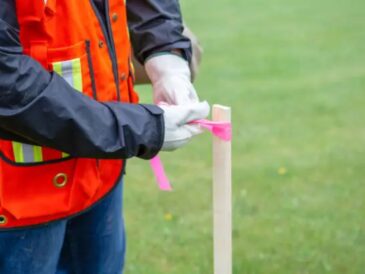In today’s increasingly complex world, legal disputes can arise from a myriad of situations, often leading to costly and time-consuming processes. One effective strategy to mitigate these disputes is through the implementation of detailed surveys. These surveys serve as a proactive measure, providing clarity and documentation that can be invaluable in preventing misunderstandings and disagreements. By gathering comprehensive data and insights, detailed surveys help establish a clear foundation, reducing the likelihood of conflicts escalating into legal battles.
The Importance of Detailed Surveys
Establishing Clear Communication
One of the primary benefits of conducting a detailed survey is the establishment of clear communication between parties involved. Miscommunication is a common precursor to disputes, and surveys help in articulating expectations, requirements, and responsibilities. By ensuring that all parties have a mutual understanding of the terms and conditions, surveys minimise the risk of misunderstandings that could potentially lead to legal issues.
Surveys provide a structured format for collecting and sharing information, which is crucial in maintaining transparency. This transparency fosters trust and cooperation, as each party is aware of the other’s needs and constraints. When expectations are clearly communicated and agreed upon, the chances of disputes arising from unmet expectations are significantly reduced.
Moreover, detailed surveys serve as a reference point throughout the duration of a project or agreement. They document the initial conditions and agreements, which can be revisited if any discrepancies or conflicts arise. This documentation is essential in resolving disputes amicably, as it provides a factual basis for discussions and negotiations.
Providing Comprehensive Documentation
In the event of a legal dispute, documentation is often the key to a swift and fair resolution. Detailed surveys offer comprehensive documentation that can be used as evidence in legal proceedings. This documentation includes data, agreements, and communications that have been recorded systematically, providing a clear trail of the decision-making process.
The thoroughness of a detailed survey ensures that all relevant aspects are covered, leaving little room for ambiguity. This comprehensive approach is particularly beneficial in complex projects or agreements where multiple variables are at play. By having a detailed record, parties can avoid the pitfalls of relying on memory or informal communications, which are often unreliable and prone to misinterpretation.
Furthermore, surveys can be tailored to include specific legal requirements and standards, ensuring compliance with relevant laws and regulations. This proactive approach not only helps in preventing disputes but also safeguards against potential legal liabilities.
How to Conduct a Detailed Survey
Identifying Objectives and Scope
The first step in conducting a detailed survey is to clearly identify the objectives and scope. Understanding the purpose of the survey is crucial in determining the type of information that needs to be collected. Whether the survey is intended to assess customer satisfaction, evaluate project progress, or gather feedback on a product, having a clear objective ensures that the survey is focused and relevant.
Defining the scope involves determining the extent of the survey, including the target audience, the geographical area, and the timeframe. A well-defined scope helps in managing resources effectively and ensures that the survey results are applicable and actionable.
Designing the Survey
Once the objectives and scope have been established, the next step is to design the survey. This involves creating questions that are clear, concise, and relevant to the objectives. The questions should be structured in a way that elicits detailed and honest responses, providing valuable insights into the subject matter.
It is important to choose the right format for the survey, whether it be multiple-choice, open-ended, or a combination of both. Each format has its advantages and can be used to gather different types of information. For instance, multiple-choice questions are useful for quantitative analysis, while open-ended questions provide qualitative insights.
Additionally, the survey should be designed to be user-friendly, ensuring that respondents can complete it with ease. This includes considering the layout, language, and length of the survey, as well as providing clear instructions and explanations where necessary.

Collecting and Analysing Data
After the survey has been designed, the next step is to distribute it to the target audience and collect responses. This can be done through various channels, such as online platforms, email, or in-person interviews, depending on the nature of the survey and the preferences of the respondents.
Once the data has been collected, it is essential to analyse it systematically. This involves organising the data, identifying patterns and trends, and drawing conclusions based on the findings. The analysis should be thorough and objective, ensuring that the results are accurate and reliable.
The insights gained from the analysis can then be used to make informed decisions, address potential issues, and implement improvements. By acting on the survey results, organisations can proactively prevent disputes and enhance their operations.
Benefits of Preventing Legal Disputes
Cost Savings
One of the most significant benefits of preventing legal disputes is the cost savings associated with avoiding litigation. Legal proceedings can be expensive, with costs including legal fees, court fees, and potential settlements or damages. By preventing disputes through detailed surveys, organisations can save substantial amounts of money that would otherwise be spent on resolving conflicts.
Additionally, avoiding legal disputes helps in preserving resources that can be better utilised for productive purposes. Instead of diverting time and effort towards legal battles, organisations can focus on their core activities and strategic goals, leading to improved efficiency and profitability.
See Also : The Importance of Hiring a Boundary Surveyor for Accurate Measurements
Maintaining Reputation and Relationships
Legal disputes can have a detrimental impact on an organisation’s reputation and relationships. Publicised disputes can damage the trust and confidence of customers, partners, and stakeholders, leading to a loss of business and opportunities. By preventing disputes through detailed surveys, organisations can maintain their reputation and foster positive relationships with all parties involved.
Moreover, resolving disputes amicably and proactively demonstrates a commitment to ethical and responsible practices. This enhances the organisation’s image and credibility, making it more attractive to potential clients and partners.
Reducing Stress and Disruption
Legal disputes can be stressful and disruptive, affecting both individuals and organisations. The uncertainty and tension associated with disputes can impact morale, productivity, and overall well-being. By preventing disputes through detailed surveys, organisations can create a more stable and harmonious environment, reducing stress and disruption.
Furthermore, a proactive approach to dispute prevention fosters a culture of collaboration and problem-solving. This encourages open communication and cooperation, leading to a more positive and productive work environment.

Conclusion
In conclusion, detailed surveys play a crucial role in preventing legal disputes by establishing clear communication, providing comprehensive documentation, and offering valuable insights. By conducting surveys with well-defined objectives and a structured approach, organisations can mitigate the risks of disputes and enhance their operations. The benefits of preventing legal disputes, including cost savings, maintaining reputation and relationships, and reducing stress and disruption, highlight the importance of detailed surveys as a proactive measure in today’s complex world. Embracing this approach not only safeguards against potential conflicts but also contributes to long-term success and sustainability.



